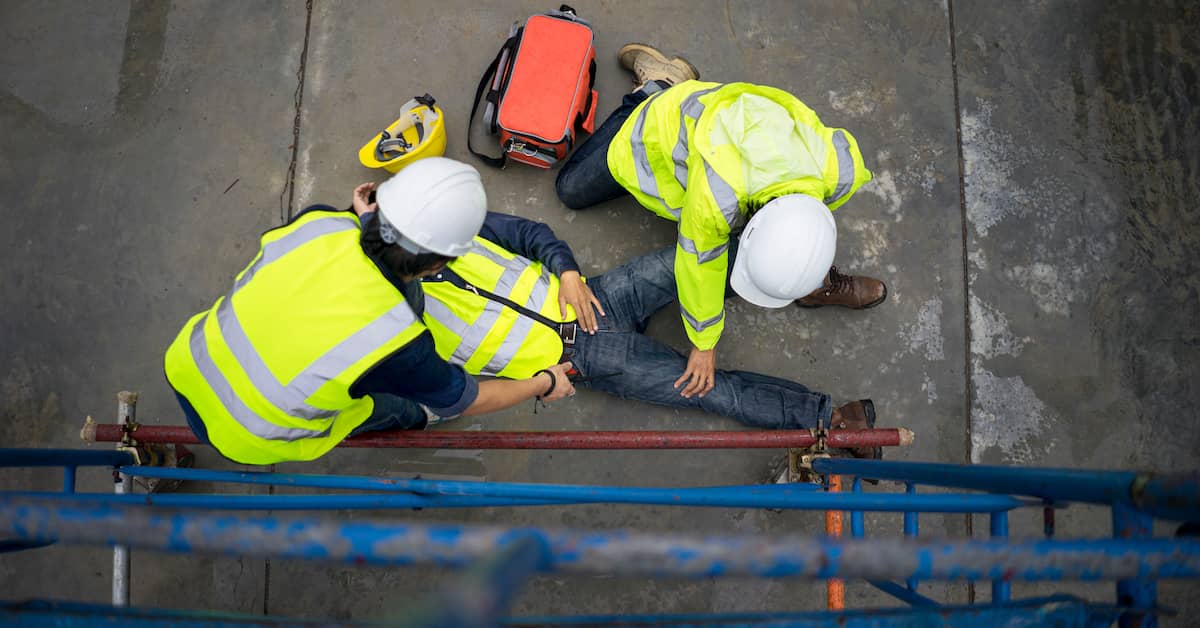
Do All Workers’ Comp Cases End in a Settlement?
While navigating a workers’ compensation settlement in New Jersey, you may wonder if all workers’ comp claims end in a settlement. The simple answer is no; however, most do.
The workers’ compensation system in New Jersey is designed to ensure that workers get their benefits quickly and without having to prove their employer was at fault. You’ll receive 100% payment of all accident-related medical bills, temporary disability payments (as long as a doctor provides a medical opinion that you have a temporary total disability), and a cash award to compensate you for your loss of function due to your injury.
A workers’ compensation settlement is often in your best interest. So is hiring a workers’ comp lawyer to negotiate on your behalf and assemble a case on the rare occasion that you have to go to court. If you suffer an injury at work, call the experienced attorneys at Maggiano, DiGirolamo & Lizzi at (201) 585-9111 for a FREE evaluation of your workers’ comp claim.
How Does a New Jersey Workers’ Comp Settlement Work?
Workers’ compensation insurance protects both employees and employers. If injured on the job, an employee can pursue compensation for medical treatment, wage replacement, and disability without having to prove the employer’s negligence. In turn, an employer can avoid costly lawsuits.
In order to qualify for workers’ comp benefits, three criteria must be met:
- Your employer must carry workers’ compensation insurance
- You must be classified as an employee
- Your injury or illness must be work-related
Though you have 2 years from the date of injury to file your claim, it is always best to file as soon as possible.
Types of Settlements
There are two types of workers’ compensation settlements in New Jersey: Section 20 and Section 22. A Section 20 settlement is not necessarily ideal. This is a lump sum settlement that is often agreed to because your employer’s insurance company has denied your claim or disputes some part of it.
With a Section 20 settlement, you cannot receive benefits outside of the full and final lump sum, even if your illness or injury worsens. Additionally, there is no admission of liability by your employer. If the insurance company accepts your claim, a Section 20 settlement is not an option.
Most workers’ comp settlements fall under Section 22. With a Section 22 settlement, you will negotiate a specific permanent disability rating (temporary total disability, permanent total disability, permanent partial disability). Then, the insurance company will pay regular installments of benefits. This settlement can be modified within 2 years of the final payment to account for any changes in your condition.
Denial of Workers’ Comp Benefits
Your claim could be denied for many reasons. Perhaps your employer or their insurance company doesn’t believe you’ve suffered as serious an injury as you claim. Perhaps there is debate as to whether the injury took place in the course of your employment. Perhaps there is an argument over whether you needed a certain treatment or so much time off work. No matter the complaint, you may still have a right to benefits.
If your claim has been denied, you have the right to appeal. There are several steps you can take. First and foremost, if you don’t already have a workers’ compensation lawyer, get one. They can help you navigate the complexities of workers’ compensation, file paperwork correctly and on time, and negotiate to pursue the maximum benefit in your claim.
Then, you may be able to contact your employer’s insurance company to find out the reason for the denial of your claim. If it was a simple error, like a lack of paperwork or a mistake on a form, you might be able to rectify the situation. You can also ask the insurer to reconsider your claim if there is new or additional information.
However, if your consultation with the insurance company does not work, you may have to file an appeal. The New Jersey Department of Labor and Workforce Development handles workers’ compensation rulings, and all appeals must go through appellate courts. You will collect and present evidence to support your claim with your lawyer’s guidance. For example:
- Medical records
- Doctors’ recommendations
- Witness statements
- Video/photos of the accident or scene
- Work logs
- Journal of progress
Read More: The Many Myths of Workers’ Compensation
How Long Do Most Workers’ Comp Settlements Take?
Simply put, it depends. It can take anywhere from several weeks to a couple of years. Agreeing to a settlement is typically much faster than going to court. However, a longer workers’ compensation case can sometimes lead to greater compensation.
A workers’ compensation settlement can be delayed when:
- Your employer or their insurance company disputes your claim
- Your impairment rating is at issue, requiring a second medical opinion
- The timeline for your maximum medical improvement (MMI) is in doubt
Maximum medical improvement is when you’ve healed as much as you are going to and no longer require medical treatment because it will not improve your condition further. This could mean that you have fully recovered from your injuries. However, it could also mean that you will never fully recover. In that case, you may be eligible for more benefits. This is an excellent time for a lawyer to act on your behalf.
If your workers’ compensation claim isn’t in dispute and your injuries are straightforward, it could take as little as 30–60 days from filing for you to receive payment.
Contact an Attorney About Your Workers’ Compensation Settlement
The ins and outs of workers’ compensation can be challenging to understand. Luckily, the attorneys at Maggiano, DiGirolamo & Lizzi are experienced in workers’ compensation settlements. We assure you we will pursue the maximum benefits you deserve in your claim.
When you are trying to heal and get back to work, the last thing you want is to fight with the insurance company for just compensation. Contact our law firm today for a FREE consultation. We will fight for you so you can focus on recovery. We are currently helping clients throughout New Jersey and New York.


















